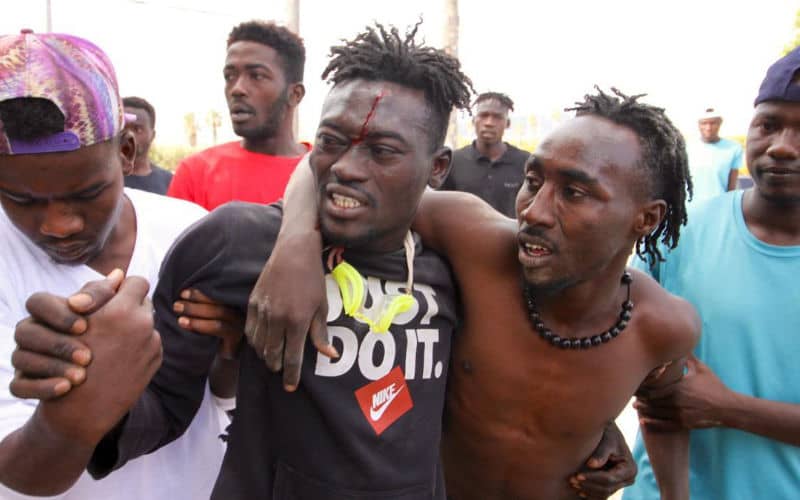Deadly Melilla Border Crossing: New Evidence Challenges Spain’s Account

Around 2,000 sub-Saharan migrants tried to enter Melilla from Morocco on June 24. At least 23 of them lost their lives in this assault, according to official sources. More than four months later, the light has still not been shed on this drama.
The deadly assault on Melilla continues to make headlines, nearly five months after it occurred. According to a BBC documentary aired on November 2, migrants would have died on the Spanish side of the border, a thesis rejected by the Spanish authorities who have always claimed that the incidents took place on the Moroccan side of the border. In this investigation, the British channel shows that some migrants died on Spanish territory, that the Moroccan police arrested migrants on the Spanish side of the border and that dead migrants from the Spanish side were transferred to the other side of the border.
According to the Spanish Ministry of the Interior, the incidents took place in a "community area", where the Civil Guard and the Moroccan police can act. An opinion not shared by some Spanish deputies who claim that the events took place on Spanish territory. Civil guards have told EFE that the avalanche began on Spanish soil and that the migrants showed rare violence, injuring some agents with stones. According to the latter, none of the migrants died on the Spanish side of the border.
At a press conference held on June 24 in Brussels, the President of Melilla welcomed the collaboration of the Moroccan and Spanish security forces in an attempt to prevent this "violent" assault of migrants in the city. The Minister of the Interior, Fernando Grande-Marlaska, explained in September that the reaction of the Spanish security forces and the means used were "appropriate and proportionate", given the violence of the migrants. Deputies from the PSOE, Podemos, PP, ERC, PNV and EH Bildu went to Melilla on Tuesday to investigate what happened. According to the information gathered, they confirm that migrants died on Spanish territory.
Other deputies are waiting to view the surveillance camera images before commenting on the matter. The Minister of the Interior has promised to make these images available to Congress in order to shed full light on this case. On Tuesday, the PP spokesman in the Senate, Javier Maroto, denounced the "false statements" of Minister Marlaska on the subject. The general coordinator of the party, Elías Bendodo (of Moroccan origin), for his part, called for the minister to be relieved of his duties.
Related Articles
-

Moroccan Migrant’s Journey: From Bus Stowaway to University Pioneer in Spain
18 August 2025
-

Spanish Truckers Clash with Moroccan Rivals: Safety and Competition Concerns Ignite Road Rage
17 August 2025
-

Moroccan-Made Dacia Dominates European Car Market, Reshaping Industry Trends
15 August 2025
-

Balearia’s Tarifa-Tanger Route Plagues Passengers: Smoke, Delays, and Contract Concerns Spark Outcry
15 August 2025
-

Moroccan Exodus: Spanish Beaches Lure Vacationers Fleeing Coastal Chaos at Home
13 August 2025